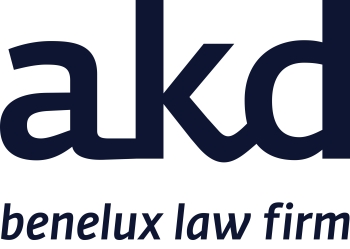Failure to comply with the detailed requirements imposed by legislation and international treaties on the import of goods into the European Union via the Netherlands could result in serious delay, additional costs, legal action or even confiscation of the goods.
In addition to performing traditional tasks such as imposing levies, the Dutch customs authorities also have the power to physically inspect and, where necessary, seize cargo on behalf of various government agencies, including:
- the Ministry of Finance;
- the Ministry of Health and Welfare (in the case of medical products and product safety);
- the Ministry for Economic Affairs (in the case of counterfeit goods and endangered animals and plants); and
- the Ministry for Infrastructure (in the case of waste and hazardous substances).
The extent of the Dutch customs officials' powers can be seen in recent judgments of the Rotterdam and Amsterdam District Courts and certain decisions of the Trade and Industry Appeals Tribunal.
When importing goods into the European Union via the Netherlands, parties in non-EU countries should be aware that the Dutch customs authorities have wide-ranging powers. Under these powers, they can impose temporary measures which can, in practice, lead to:
- serious delays;
- increased costs;
- lengthy discussions with the authorities; and
- the compulsory destruction of goods.
Traditionally, customs authorities monitor the import, export and carriage of goods and, to that effect, check whether taxes and duties are due upon entry into the European Union. They also investigate whether goods meet existing definitive import, export or re-export requirements. However, under the General Customs Act, the Dutch customs authorities have also been delegated various safety, health, economic and environmental (SHEE) tasks and responsibilities, including supervising compliance with national and international SHEE legislation.
This legislation stipulates that importing, exporting, storing or carrying certain goods within the Netherlands is prohibited or permitted only if strict conditions are met or the goods themselves meet certain requirements. On account of their SHEE responsibilities, the Dutch customs authorities carry out a large number of inspections, observations and investigations at the request of various ministries.
Compliance with national rules
Customs officials in the Netherlands are often appointed as special investigators and can exercise various powers when violations occur or punishable offences are recorded during their performance of inspection tasks. For example, customs officials must supervise compliance with the national rules relating to product safety as a means of helping to protect public health and safety.
Customs supervision involving endangered domestic and foreign species of animals and plants and associated products is based on national laws implementing the Convention on International Trade in Endangered Species of Wild Fauna and Flora (CITES). Trade in seriously endangered species is prohibited throughout the entire European Union, whereas less endangered species can be imported only if special CITES documents and import or export licences have been issued by the relevant authorities of the country of origin and the EU member state to which the goods are consigned.
There are also specific requirements relating to the shipment of medicines into the European Union, which are designed to prevent the import of products which could represent a health hazard or are not definitively certified as effective. In the Netherlands, unlicensed medicines or substances used in the manufacture of medicines cannot be imported without Ministry of Health registration. Medicines and active substances that enter the country without a licence or appropriate registration will be intercepted and seized by the customs authorities, who will be advised on how to handle the shipment by the Dutch Healthcare Inspectorate.
Parties outside the European Union should be aware that products which they export to the Netherlands are subject to inspection on the basis of many different international compliance requirements, which are often difficult to understand or even find. Failure to comply with these fragmented import requirements might lead – in the first instance – to seizure by the customs authorities and therefore an unwelcome interruption of the supply chain. Further, depending on the nature of the violation, the goods themselves may need to be:
- repacked;
- processed;
- returned to the place of origin or carried to a non-EU destination; or
- destroyed under the authorities' supervision.
In one recent case, Dutch customs officials seized a consignment of ingredients used for cosmetics, leading to the goods' destruction.
In addition to the above penalties, parties which violate the rules will be subject to legal enforcement proceedings involving written warnings, administrative orders, penalty payments and administrative fines, as well as possible prosecution under criminal law in the event of the Public Prosecutor's Office's involvement. As goods will often be inspected in warehouses or at terminals on entry, third-party logistics services providers acting on their principal's instructions may also be subject to enforcement measures.
The Dutch customs authorities have wide-ranging inspection powers and, once irregularities have been uncovered, parties with cargo interests may be faced with severe delays and ensuing costs which could have been avoided had they had a better understanding of the relevant rules and regulations.
For further information on this topic please contact Sebastiaan Moolenaar at AKD by telephone (+31 88 253 50 00) or email ([email protected]). The AKD website can be accessed at www.akd.nl.
This article was first published by the International Law Office, a premium online legal update service for major companies and law firms worldwide. Register for a free subscription.



